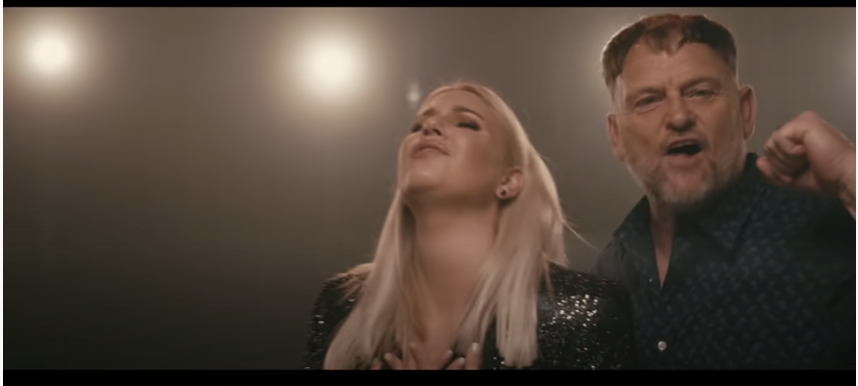In his unfinished and unreleased manuscript, Remember This House, on which the documentary film I Am Not Your Negro (2016) is based, James Baldwin writes that in 1960s USA, discrimination against African American people was not driven by hatred, anger, or fear, but by wilful ignorance on the part of white US citizens. In November 1962, Baldwin writes in The New Yorker that “the reason for this ignorance is that a knowledge of the role these people played – and play – in American life would reveal more about America to Americans than Americans wish to know.”
Baldwin’s writing about the place and function of systemic racial oppression continues to reverberate in contemporary US, as it did in apartheid South Africa, and as it continues to do in prevailing cultural codes through which traces of South Africa’s past may be read and kept alive.
One cultural product in which such codes are inscribed is the newly released Afrikaans song Ons Sal Self (translation: “We will do it ourselves”) by various popular Afrikaans singers, and released by trade union Solidariteit/Solidarity to launch its new work recovery programme, along with the social media hashtag #OnsSalSelf. This project is envisioned as an answer to job losses suffered in the wake of the Covid-19 pandemic and South African lockdown regulations.
The programme is set up by Solidarity to speak to all South Africans regardless of skin colour, but the song that launches the project sets a different tone, perpetuating myths of an Afrikaner self-reliance and ensuing racial exclusion that permeates this country’s apartheid past.
A collective Afrikaner memory has arguably been one of a selective recollection of the past since the inception of Afrikanerdom. In this narrowed historical landscape, Afrikaner people looked on the colonial rule of the British and, like their ancestors, saw overt oppression. They looked on the likely stubbornness of the Trekkers of the 1835 Great Trek and saw the determination of martyrs. Their ancestors’ success in reaching the interior and battles with indigenous people signalled to them proof of the favour of God.
Such a wilful ignorance with which Afrikaners read their history obscured the possibility of objective realities in their pasts, presents and futures. The myth of self-reliance had been representationally and systemically established under apartheid through laws and regulations that resulted in the careful orchestration of such a façade. Furthermore, this appearance was maintained organisationally by, among other means, the establishment of the Afrikaner Broederbond that ensured labour, economic, and social privileges for Afrikaner people.
Such an appearance was strengthened and perpetuated by mass media and an ensuing popular Afrikaner culture that would later come to be carefully curated by stringent censorship laws. The result is a flattened archive of Afrikaner history and memory, and these singular traces continue to find their way back into popular narrative in post-apartheid South Africa, especially within a global context of social media-driven political polarisation.
The lyrics
Ons Sal Self opens with lyrics that proclaim that what is now South Africa was a wasteland a couple of hundred years ago, and “then we came here to bear the burden of a country that would take all our sweat and labour, since we endure in determination, and they know this”.
Solidariteit/Solidarity may claim that it speaks on behalf of all South Africans, but the tone set by the group of singers collaborating on this project is emphasised by the narrative in the lyrics, and the us/them binary so explicitly set up. The lyrics making reference to burdens recall Rudyard Kipling’s 1899 poem The White Man’s Burden, which largely served to justify colonialism as a civilising mission with which “the white man”, or Europeans, were tasked.
Furthermore, the lyrics claim a state of nothingness prior to the arrival of “us”, visually established as white people, and coinciding with continuing defences of colonialism and its structures and traces. Colonial paradigms continue to maintain that civilisation, education and religion had no place and function prior to the fulfilment of “the white man’s burden” in Africa and elsewhere. The result of perpetuating this version of history in Ons Sal Self is the continuing imposition of a Eurocentric lens on South Africa’s history, and an utter denial of the contributions of other races and ethnicities in the country’s past and present.
What is further troubling is that the song looks to the future too, in the lyric “We will rebuild”. The implications for the continuation of an exclusionary narrative in imagining versions of the country’s future cannot be ignored.
The visuals
Visually, the music video opens on a construction site, and throughout the song, the visuals cut to the half-completed building and a group of white foremen, Solidariteit management, in hard hats bearing the union’s orange and blue colours.
While the construction site would be an apt metaphor for the construction and fabrication of the Afrikaner nation, in the context of the song it picks up on codes of “burden-bearing” and reads as a symbol of Afrikaners’ unfinished business in, and supposed continuing building of, South Africa, led by Solidariteit.
The lyrics and visuals amplify each other in their selective recollection of the country’s history regarding its division of labour. Apartheid laws ensured skilled labour positions in the hands of white Afrikaners, and enabled an education system that ensured that such a division would remain in place, with black South Africans in blue-collar and hard labour positions.
Even in cases of Afrikaner people in blue-collar positions, segregation laws and an entire social system ensured for these white citizens a far more economically and socially comfortable life than their black counterparts were legally permitted to attain.
At various points in the music video, the raised fists of the singers in action extend this narrative of a South African labour history and black liberation struggles, in which class and race intersect, as visually symbolised by raised fists. The rerouting of this visual code in the context of Ons Sal Self serves to further delegitimise the struggles and contributions of black people, particularly the foundational role black labour played in the construction of South African industry and economy, and a subsequent veneer of Afrikaner self-reliance and self-made prosperity.
In the music video the singers all stand in a circle formation, watching each other while they sing. This arrangement visually recalls the laager, so important in Afrikaner mythology. This circular wagon fortress became a symbol of Afrikaner solidarity, and of the confidence that God would favour the Afrikaner people if only they would be faithful to him and rally to the aid of one another.
This belief became a central theme throughout the rise and course of Afrikaner nationalism, with which to sustain and justify Afrikaners’ ideological positions. These codes are inscribed in this music video too, with overt mentions of faith and prayer – by implication situated in Christian religion, and associated with the supposed continued divine favour of Afrikaner people. The inclusion of these codes in a popular cultural product indicates the extent to which codes of general Afrikanerdom have become conflated with religious implications.
The naturalisation of religiosity, labour, and solidarity in the visuals and lyrics of Ons Sal Self, combined with the exclusionary laager formation, results in a myopic and hermetic extension of Afrikaner nationalist separation and a resultant negation of any narratives or people beyond the laager.
It may be argued that an element of ignorance plays a crucial role in any nation-building project, and that especially in post-apartheid South Africa a selective remembering and forgetting of the past is needed in order to move forward as a united country. However, the continuation of Afrikaner nationalist codes in Ons Sal Self, after the failure of apartheid as its socio-legal epitome, signals the wilful ignorance Baldwin speaks of.
Such an ignorance is arguably emboldened in a global context of far-right sentiments disseminated and validated via social media, enabling political polarisation. To borrow from Baldwin: the reason for this ignorance is that a knowledge of the role other people played – and play – in South African life would reveal more about Afrikaners to Afrikaners than Afrikaners wish to know.
An objective reality is that the Afrikaner people’s perceived self-reliance is a constructed one, one that necessitates an exclusion and exploitation of the labour and efforts of other people and narratives – in an imagined past, present, and future.




